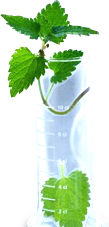



Author(s): Nwaichi E. O.*, Monago C.C. and Amaraegbulem P. I.
The in vitro effects of the cyanobacteria (Athrospira platensis), spices (Monodora myristica) and the achene (Hellianthus annuus) on the rate of polymerization, sickle cell reversion and oxygen affinity of sickle cell hemoglobin (HbS) was studied spectophotometrically using hemolysates of HbS containing erythrocytes treated with sodium metabisulphite in the presence of the different plant extracts. All fractions of the three plant extracts showed statistically significant decreases (p< 0.05) in the rate of polymerization therefore inhibited the rate of sickling with increasing time. The Benzene Soluble Extract (BESE) fraction of Hellianthus annuus demonstrated the highest antisickling activity (89.15% inhibition of HbSS), while the least was by the BESE fraction of Athrospira platensis (45.16% inhibition of HbSS). The crude aqueous extract (CAE) fraction of Athrospira platensis showed the highest antioxidant effect, while CAE fraction of Monodora myristica gave the least. The water soluble extract (WSE) fraction of Hellianthus annuus expressed maximum rate of sickling reversion. Alcohol extracts of these plants were found to exhibit a more significant antisickling activity relative to the aqueous extracts which is attributable to the presence of some lipophillic amino acids present in the alcoholic fraction of the extracts, and it could also be responsible for the observed high reversion capacity but low antioxidant effect of the lipophillic fraction of the plant extracts.